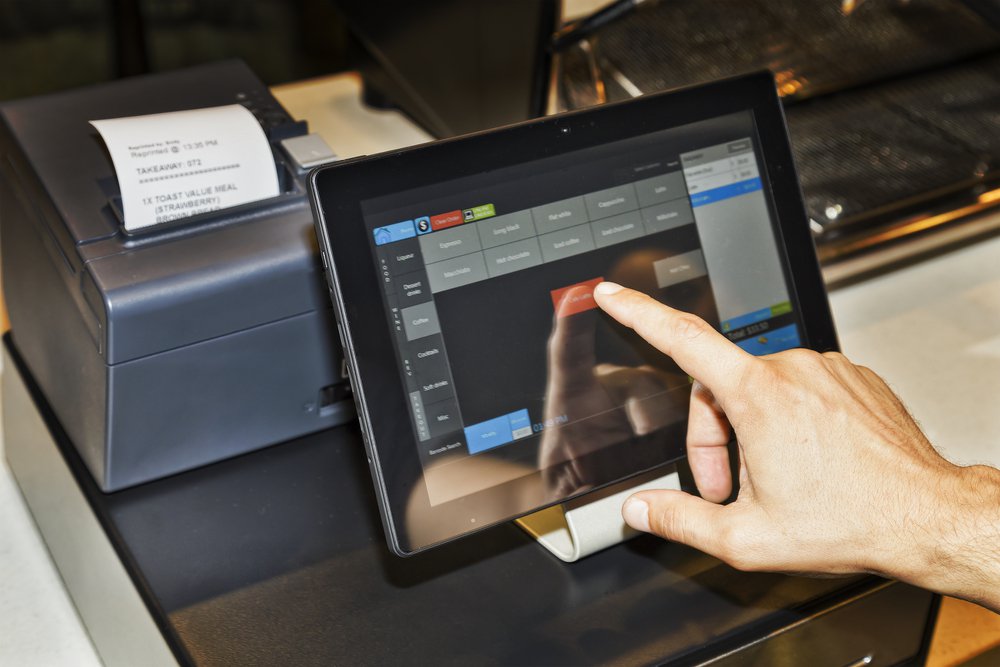Cutting Operational Costs with POS Technology

In today’s competitive business landscape, cutting operational costs is a top priority for business owners. While there are countless ways to reduce expenses, implementing a modern Point of Sale (POS) system stands out as a game-changer. This technology does more than just process transactions; it optimizes operations, enhances efficiency, and minimizes waste—ultimately leading to significant cost savings. Here’s how POS technology can help businesses trim their operational costs without compromising on quality or customer experience.
Streamlining Transactions
One of the most immediate benefits of a POS system is the speed and accuracy it brings to transactions. Traditional cash registers require manual input, which can lead to errors and slower service. A modern POS system automates the checkout process, ensuring every transaction is recorded accurately and swiftly. This efficiency reduces customer wait times and allows employees to handle more transactions within the same timeframe, improving overall productivity.
Faster checkouts mean happier customers, which translates into increased repeat business. Additionally, the automation of processes like calculating taxes or applying discounts minimizes errors that can lead to financial discrepancies or loss.
Optimized Inventory Management
Inventory management can be a costly and time-consuming task, especially for businesses with extensive product catalogs. Overordering leads to excess stock, while underordering results in missed sales opportunities. A POS system solves these issues by providing real-time inventory tracking and management.
With features like automated stock alerts and detailed sales reports, business owners can make data-driven decisions about purchasing. For example, a POS system can identify slow-moving items, enabling businesses to offer promotions or discounts to clear out inventory. Conversely, fast-moving products can be reordered in time to meet demand, avoiding stockouts. This level of precision minimizes waste, reduces holding costs, and ensures better cash flow management.
Reducing Labor Costs
Labor is often one of the most significant expenses for any business. POS technology helps optimize workforce management through features like employee time tracking and performance analytics. By analyzing sales data, you can identify peak business hours and adjust staff schedules accordingly. This ensures you have enough staff during busy periods and avoid overstaffing during slow times.
Moreover, the intuitive interface of modern POS systems reduces the need for extensive employee training. New hires can quickly learn how to use the system, saving time and resources on onboarding. This ease of use also minimizes errors caused by manual entry, reducing the need for time-consuming corrections.
Enhanced Reporting and Analytics
A POS system’s reporting capabilities provide invaluable insights into your business’s financial health. Detailed reports on sales, inventory, and employee performance allow you to identify areas where costs can be reduced. For instance, you might discover that certain products have high carrying costs but low profitability, prompting a shift in your inventory strategy.
By regularly reviewing these reports, businesses can spot inefficiencies and implement corrective measures promptly. This proactive approach to cost management helps avoid unnecessary expenses and ensures your resources are allocated effectively.
Lower Maintenance and Administrative Costs
Modern cloud-based POS systems eliminate the need for costly on-premise hardware and maintenance. Updates and backups are handled automatically, reducing the need for IT support. Additionally, cloud-based systems enable remote management, allowing business owners to oversee operations from anywhere. This flexibility can save on administrative overhead and reduce the need for multiple on-site managers.
Furthermore, POS systems integrate seamlessly with other business tools like accounting software, eliminating the need for redundant data entry. This integration reduces the risk of errors and saves time, further cutting administrative costs.
Minimized Fraud and Shrinkage
Employee theft and inventory shrinkage are significant challenges for many businesses. A POS system helps mitigate these risks by providing transparency and accountability. With features like user-specific login credentials and transaction tracking, every action is recorded and traceable. This discourages fraudulent activities and makes it easier to identify discrepancies.
Additionally, real-time inventory tracking ensures that all stock is accounted for, making it difficult for items to go missing unnoticed. By minimizing shrinkage, businesses can save thousands of dollars annually.
Improved Energy Efficiency
While it may not be the first benefit that comes to mind, modern POS systems are often more energy-efficient than traditional cash registers and legacy systems. Cloud-based solutions, for instance, require less hardware, reducing energy consumption. Over time, these savings can add up, especially for businesses with multiple locations.
Enhanced Customer Retention
Retaining customers is more cost-effective than acquiring new ones, and a POS system can help businesses build loyalty. Features like customer profiles, loyalty programs, and targeted promotions enhance the shopping experience and encourage repeat business. Retention-driven strategies reduce marketing expenses, contributing to overall cost savings.
The ROI of Investing in POS Technology
While the initial cost of implementing a POS system may seem high, the return on investment (ROI) is undeniable. The efficiencies gained in inventory management, labor optimization, and fraud prevention quickly offset the upfront expense. Businesses often find that the savings and increased revenue generated by a POS system far outweigh the costs.
Conclusion
Cutting operational costs is essential for maintaining profitability, and POS technology provides an effective, multifaceted solution. From streamlining transactions and managing inventory to reducing labor costs and preventing fraud, a POS system touches every aspect of your operations. By investing in this technology, businesses can achieve significant cost savings while improving efficiency and customer satisfaction.
In a world where every penny counts, adopting a modern POS system is not just a smart choice—it’s a necessary one. Make the move today and position your business for sustainable growth and success.





